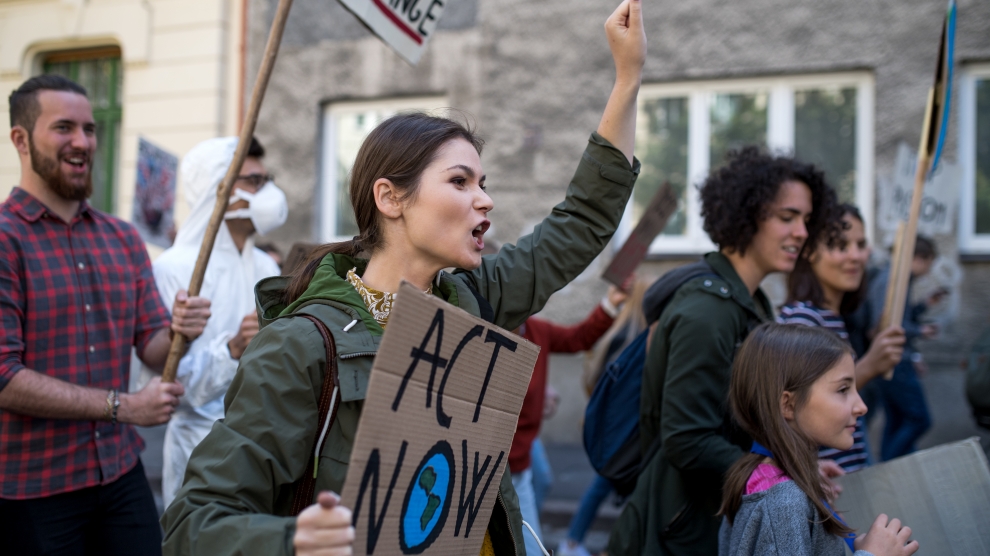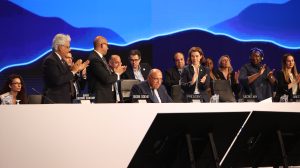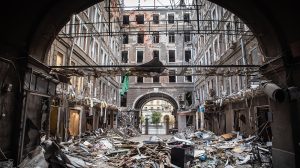The World Economic Forum has called for The Great Reset. The European Union has made bold proposals for what it has ambitiously dubbed Next Generation EU. The world’s media have spoken a great deal about The New Normal.
While the nomenclature for the world which follows Covid-19 may yet be malleable and far from set in stone, it should now be abundantly clear that the world will change. It many regards it already has, and irreversibly so.
The pandemic is far from over, but it does appear that many parts of the world – including the bulk of emerging Europe – have seen the worst pass. (Alas for some countries in the region: Armenia, Belarus and Moldova in particular, this is not the case). And while it is perhaps still far too early to draw any formal conclusions about our experiences over the past three months, we can at least begin to use those experiences in order to think a little about what should come next.
Back in the early days of March, when Covid-19 became a truly global pandemic and lockdown restrictions were first being put in place, there was a broad consensus that we would simply be ‘switching off’ for a short while. Once the pandemic had passed, the world could equally simply be ‘plugged back in’ and life would continue much as it had before.
This now looks not just impossible, but undesirable.
Some of the seemingly irreversible changes we have seen are small-scale, local innovations which have merely been brought forward by the necessities of the pandemic. Roads in cities big and small converted for pedestrians and/or cyclists, for example: drivers will not be getting these roads back anytime soon. Then there is the shift towards working from home, and the digitalisation of government and public services. Covid-19 has hastened change that was bound to happen anyway.
It is at the macro level that the biggest shifts will be seen, however, but only if decision makers are genuine in their commitment to ensuring that we emerge from the biggest global recession since the 1930s with a better world.
Research carried out by the International Monetary Fund has demonstrated that after previous pandemics, such as SARS or H1N1, global inequality increases. Leaders around the world should therefore be asking themselves right now how they can prevent the world becoming more unequal and less fair this time around. Many are talking a good game, but do they mean it?
The recent demonstrations against inequality of various forms which have taken place in a number of countries (especially the United States) should certainly provide food for thought. They should be taken as a stern warning by policy makers that doing nothing is not an option. Simply ‘plugging the world back in’ is likely to cause a short circuit and set the planet ablaze.
And speaking of blazing planets, if there is one aspect of the global reaction to Covid-19 that offers cause for great optimism, it is the realisation that when people fully understand that their health is at stake, they will by and large accept any measures necessary to protect that health.
Although there were some isolated demonstrations against lockdown restrictions (again, particularly in the United States but also in some cities in Europe), the vast majority of the world’s population understood from the very start that the threat posed by Covid-19 was real, and that if lockdown was the only way to contain it, then so be it.
This broad consensus, which required little persuasion beyond coherent and factual-based reporting (not easy amidst the deluge of fake news that has unavoidably been a fixture on our screens, large or small), should be viewed as encouraging in the context of the fight against climate change, which will increasingly require us to eschew the kind of throwaway, consumerist lifestyles that have become the norm – for those who can afford them – across the globe.
Many years ago a university professor of mine, well ahead of the curve when it came to recognising the threat posed by climate change, lamented the fact that people would never vote for the kind of change we need to bring about in order to genuinely make the world a greener, more fair and better place.
It is my belief – Panglossian as it may be – that the reaction to Covid-19 has proven him wrong.
What we need to do now is to nurture and support those movements – especially from the civil society sector – which are committed to bringing about the change that we need. We have been given a chance to finally get it right, to finally reset the planet. We may not get another.
—
Unlike many news and information platforms, Emerging Europe is free to read, and always will be. There is no paywall here. We are independent, not affiliated with nor representing any political party or business organisation. We want the very best for emerging Europe, nothing more, nothing less. Your support will help us continue to spread the word about this amazing region.
You can contribute here. Thank you.









[…] Forumul Economic Mondial a cerut Marea Resetare. Uniunea Europeană a făcut propuneri îndrăznețe pentru ceea ce a numit ambițios Next Generation EU. Mass-media mondială a vorbit foarte mult despre The New Normal. Deși nomenclatura pentru lumea care urmează Covid-19 poate fi totuși maleabilă și departe de a fi setată definitiv, ar trebui să fie acum clar că lumea se va schimba. Mulți consideră că deja s-a schimbat, ireversibil, și din multe puncte de vedere așa este. La nivel macro se vor observa cele mai mari schimbări, dar numai dacă factorii de decizie sunt autentici în angajamentul lor de a ne asigura că vom ieși din cea mai mare recesiune globală de la 1930 într-o lume mai bună. Cercetările efectuate de Fondul Monetar Internațional au demonstrat că, după pandemiile anterioare, precum SARS sau H1N1, inegalitatea globală a crescut. Liderii din întreaga lume ar trebui, prin urmare, să se întrebe chiar acum cum pot împiedica lumea să devină mai inegală și mai puțin corectă și de data aceasta. Mulți vorbesc cu intenții bune, dar ce înseamnă asta la nivel global? (Emerging Europe) […]